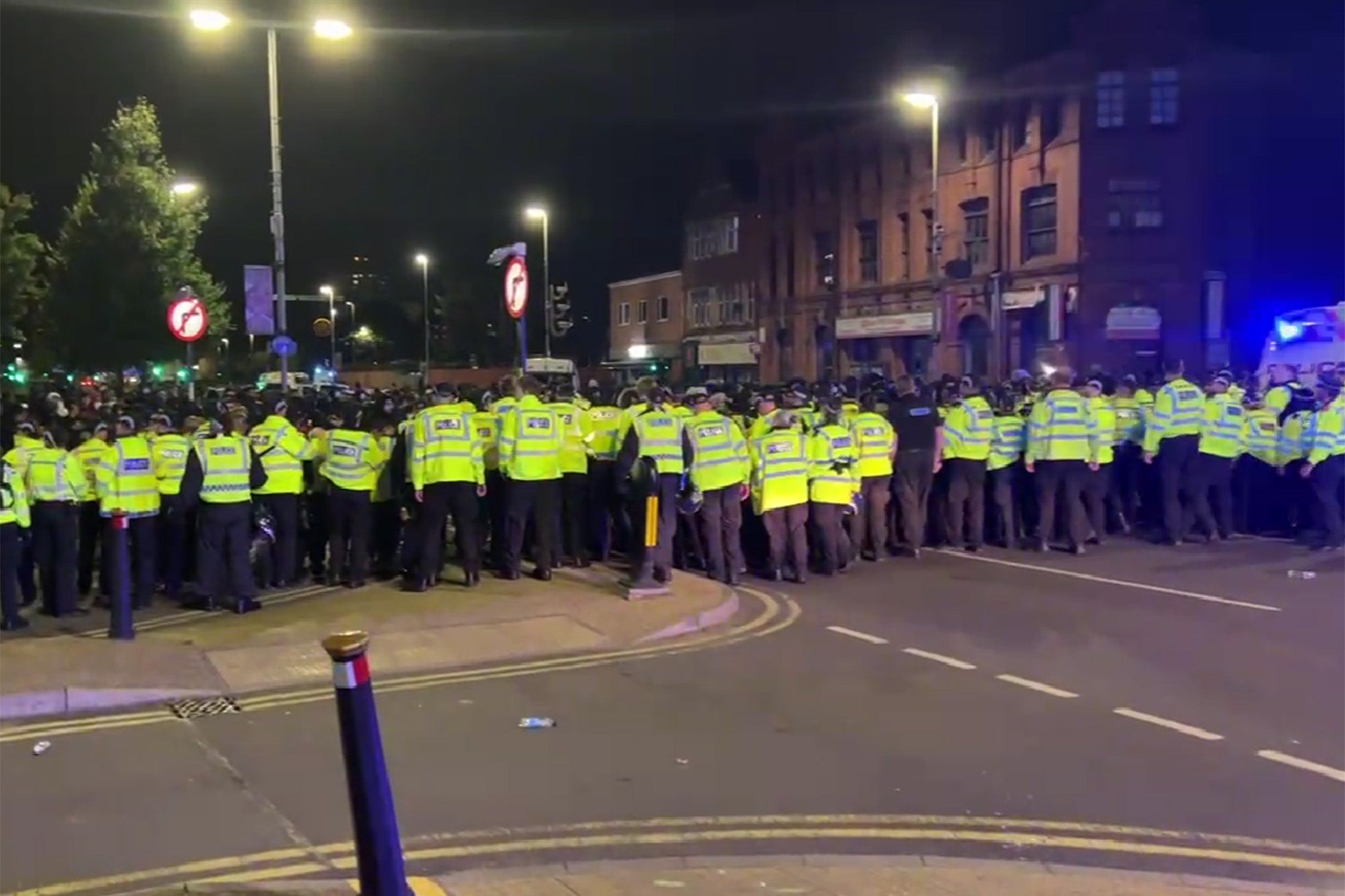Leicester riots a warning that violence in UK can be sparked by global events, experts say
Calls for new measures to prevent sectarian troubles in other countries seeping into neighbourhoods here

Your support helps us to tell the story
From reproductive rights to climate change to Big Tech, The Independent is on the ground when the story is developing. Whether it's investigating the financials of Elon Musk's pro-Trump PAC or producing our latest documentary, 'The A Word', which shines a light on the American women fighting for reproductive rights, we know how important it is to parse out the facts from the messaging.
At such a critical moment in US history, we need reporters on the ground. Your donation allows us to keep sending journalists to speak to both sides of the story.
The Independent is trusted by Americans across the entire political spectrum. And unlike many other quality news outlets, we choose not to lock Americans out of our reporting and analysis with paywalls. We believe quality journalism should be available to everyone, paid for by those who can afford it.
Your support makes all the difference.Religious and ethnic violence in different parts of the world could increasingly spread to UK towns and cities, experts have warned after Hindu-Muslim clashes in India were blamed for sparking riots in Leicester.
Experts in hate and religious crimes say the disorder in the East Midlands city may represent a new challenge to social cohesion across Britain: how to prevent sectarian trouble in other countries seeping into diverse neighbourhoods here in an increasingly inter-connected world.
Hundreds of young men fought each other – and police – in the East Midlands city over two nights this weekend.
Cars were smashed, bottles and stones thrown, and some 25 police officers injured in the trouble in the Belgrave Road and Green Lane Road areas. Some 20 people were arrested. Two have since been sentenced to suspended prison sentences for carrying an offensive weapon and a knife.
The violence has been ostensibly blamed on flare-ups following an India-Pakistan cricket match played in Dubai last month.
But, more widely, it is thought that tensions have long been simmering in the city because of events in India – where the current ruling party, the BJP, has been accused of implementing a raft of anti-Islamic policies.
Now, experts in hate studies and community cohesion at Leicester’s two universities have said the events may be a canary-in-a-coalmine style warning for other towns and cities that international political turbulance can impact their neighbourhoods.
“There is no doubt in my mind that the religious tensions in India and the actions of a hard-line, violent, nationalist government there has had a direct influence on what we have seen [in Leicester],” said Professor Neil Chakrobarti, director of the Centre for Hate Studies at Leicester University. “Without the BJP in power in India – without their demonisation of minority groups – it is difficult to imagine the same tensions here.
“And what that shows – what we need to recognise, here in Leicester but everywhere where different communities co-exist – is that what goes on thousands of miles away, across continents and borders, will cause ripple effects here at home. The global is local. In an inter-connected world, global events will expose and exacerbate local tensions.”
He added that this was not just a challenge for Leicester but everywhere that different communities co-existed.
Kim Sadique, associate professor in community and criminal justice at the city’s De Montfort University, agreed.
“We need to be aware that conflicts in other parts of the world will seep into the interactions of different communities here, and we need to be equipped to deal with that,” she said. “We must ensure that we are creating mechanisms for having conversations between communities about any issue and we must ensure those coversations include real real grassroots dialogue.”
It is not unheard of for hostility in other parts of the world to play out in British neighbourhoods.
Flare ups between Israel and Palestine often lead to a rise in anti-Semitism threats and graffiti. In Leicester itself, tensions simmered between different Sri Lankan groups during the country’s civil war.
But the scale of the weekend’s trouble is perhaps unprecedented in such a context.
It sent shockwaves through a city where 40 per cent of the population are of Asian and which has long considered itself a model of diversity, tolerance and harmony.


